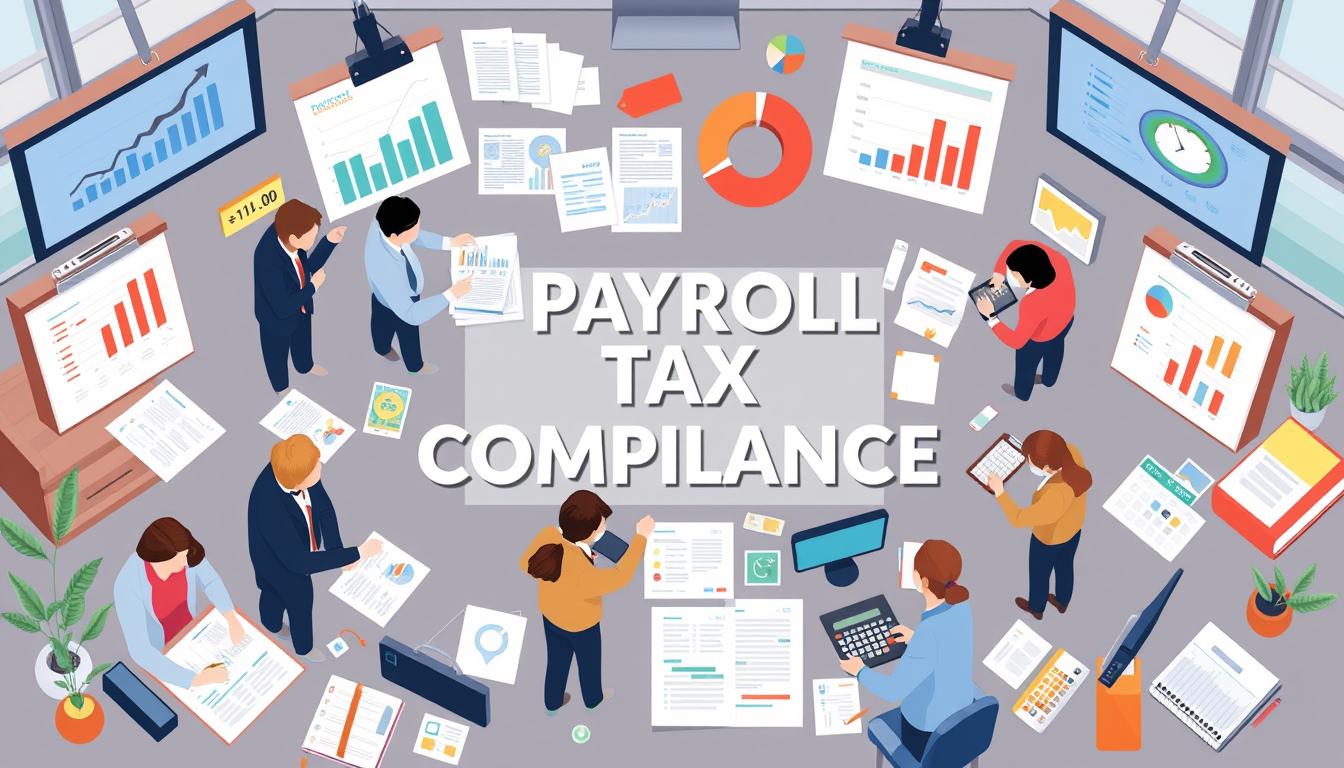Nevada doesn't have a state income tax, which sets it apart from many other states. You won't pay any income taxes at the state or local level, making your tax experience simpler. However, the state does generate revenue through sales taxes, which start at 6.85%, and property taxes, averaging about 0.50% of your home's market value. You'll also encounter excise taxes on specific goods like gas and alcohol. This unique tax structure can be beneficial for both residents and businesses. If you're curious about other taxes that might affect you, there's more to uncover.
Key Takeaways
- Nevada does not impose a state income tax or local income taxes on residents.
- Revenue in Nevada mainly comes from sales taxes, excise taxes, and gaming taxes.
- The average property tax rate in Nevada is approximately 0.50% of home market value.
- Excise taxes are applied to specific goods like gas, alcohol, and tobacco, contributing to state revenue.
- Nonprofits can apply for sales tax exemptions if they have IRS 501(c) status.
Overview of Nevada Tax Structure

When it comes to taxes, Nevada stands out due to its unique structure. The state has a base sales tax rate of 6.85%, but local jurisdictions can add their own taxes, leading to a total rate range of 6.85% to 8.375%, depending on where you are. For instance, in Clark County, the rate is 8.375%, while Washoe County has an 8.265% rate. This variability means you'll want to check local rates before making purchases.
If you buy goods from out-of-state vendors and use them in Nevada, you'll also encounter a Consumer Use Tax. This tax matches the local sales tax rate, ensuring that even out-of-state purchases are taxed appropriately. Additionally, the economic sales nexus threshold in Nevada is set at $100,000, which means businesses meeting this criterion must also collect sales tax.
Businesses collect sales tax at the point of sale and are responsible for remitting it to the state. However, keep in mind that Nevada's tax system is considered regressive, placing a heavier burden on lower-income households compared to wealthier ones.
The lowest 20% of earners pay about 7.5% of their income in sales taxes, while the top 1% only pay about 1.1%. This disparity highlights the challenges within Nevada's tax structure.
State Income Tax Details

Nevada's tax landscape is particularly appealing because it doesn't impose a state income tax, which means you won't see any deductions from your paycheck for state taxes. This absence of a state income tax extends to local income taxes as well, so no city in Nevada will take a cut from your earnings either.
While you're still responsible for federal income taxes, your paycheck will be free from state tax withholding. Since there's no state income tax, you won't need to worry about varying tax rates based on your income level or filing a state tax return. This can simplify your financial planning, as you only have to focus on federal tax brackets when filing your taxes.
Moreover, without state tax credits to consider, you can streamline your tax preparation process even further. Living in Nevada can lead to increased take-home pay compared to states with high income tax rates, like California and New York. Additionally, the average property tax rate in Nevada is around 0.50% of home market value, which further enhances the appeal of living in the state.
Plus, you won't face estate or inheritance taxes, and property tax rates are generally lower than the national average. Overall, Nevada's tax structure contributes to a lower overall tax burden for residents.
Sales Tax in Nevada

Residents and visitors in Nevada should be aware of the state's sales tax system, which adds another layer to the overall tax structure. The base state sales tax rate is 6.85%, but local rates vary significantly across counties. For instance, in Clark County, you'll face a total sales tax of 8.375%, while in Douglas County, it's only 7.10%. Other counties, like Carson City and Churchill, also have a tax rate of 7.60%.
Certain items are exempt from sales tax, including unprepared food, prescription medicines, and some medical devices. However, prepared foods, dietary supplements, and alcohol are taxable. Nonprofits can apply for a sales tax exemption through the Nevada Department of Taxation, provided they have obtained 501(c) tax-exempt status from the IRS.
If you're engaging in business, remember that Nevada is a destination-based sales tax state, meaning the tax rate is based on where the sale occurs. You'll also need to be mindful of nexus rules; having a physical presence in Nevada or exceeding $100,000 in gross revenue creates a sales tax obligation.
Understanding these local variations and rules can help you navigate Nevada's sales tax landscape effectively.
Property Tax Information

Understanding property tax in Nevada is crucial for homeowners and investors alike. The maximum property tax rate is capped at $3.66 per $100 of assessed value. This includes a base rate of $3.64 and an additional 2 cents for natural resource protection. Each year, local governments propose property tax rates based on their budgets, and these rates can fluctuate accordingly. However, there's a limit: local governments can't increase property tax revenue by more than 6% from the previous year, excluding new construction.
Your property's assessed value is calculated at 35% of its taxable value. This taxable value is influenced by market value and the property's use. For improvements like buildings, the taxable value is the replacement cost minus depreciation. Additionally, Nevada's average effective property tax rate is among the lowest in the U.S., making it attractive for property ownership.
Different types of property, such as real estate and personal property, have specific tax implications, with mobile homes treated as personal property unless converted. Counties collect property taxes, which fund local services, school districts, and state debt. Each county may have varying tax rates, affecting your overall tax bill.
Gas and Sin Taxes

In recent years, the landscape of taxation in Nevada has included both gas and sin taxes that significantly impact consumers. When you fill up your gas tank, you're paying a state excise tax of 23 cents per gallon, plus the federal gas tax of 18.4 cents. In Washoe County, you'll face an additional 47.09 cents per gallon.
This brings your total gas tax burden to 68.88 cents per gallon, which is 11 cents higher than the national average. These high taxes contribute to some of the highest gas prices in the nation, influenced further by refinery issues and global production cuts. As of September 2023, the average gas price in Nevada has surpassed 5 dollars, reflecting the ongoing challenges faced by consumers.
Sin taxes also hit your wallet, particularly if you smoke or drink. Nevada imposes a cigarette tax of $1.80 per pack and a 30% tax on other tobacco products and vapor products.
Alcohol taxes vary, with beer at $0.16 per gallon, wine at $0.70, and liquor at $3.60. These sin taxes, while a source of revenue for the state, are considered regressive, placing a heavier burden on lower-income residents.
Other Tax Considerations

Several key tax considerations shape Nevada's financial landscape beyond gas and sin taxes. One important aspect is the sales tax, which has a base state rate of 6.85%. However, local rates can range from 0% to 1.525%, making the total sales tax rate fluctuate between 6.85% and 8.375%, depending on where you're in the state. For example, if you're in Clark County, you'll pay a total of 8.375%.
Property taxes in Nevada are relatively low compared to other states, assessed on the value of real estate and personal property. These funds are crucial for local services such as schools and law enforcement. Additionally, property tax assessments are conducted periodically to ensure fairness in taxation.
You also need to be aware of the Modified Business Tax, which applies to employers based on the wages they pay their employees. This tax is significant for state revenue.
Additionally, Nevada benefits from gaming and lodging taxes, crucial for funding tourism and state services.
While there's no state income tax, you should keep in mind that excise taxes on specific goods also contribute to the state's revenue, supporting various local and state initiatives.
Frequently Asked Questions
Are There Tax Deductions Specific to Nevada Residents?
Yes, there are tax deductions specific to Nevada residents, particularly for education.
You can contribute to the Nevada Future Path 529 Plan, which offers tax-free gifts up to $90,000 for individuals and $180,000 for couples in one year.
However, to qualify for state benefits, you must contribute to Nevada's 529 plan.
Keep in mind that there aren't state income tax deductions beyond federal gift tax exclusions.
How Do I Appeal a Property Tax Assessment in Nevada?
To appeal a property tax assessment in Nevada, you'll first need to obtain the correct petition form from your county assessor or their website.
Fill it out accurately, detailing your property and the reasons for your appeal. Gather supporting evidence, such as comparisons to similar properties and any assessment errors.
Submit your form and documentation by the deadline, and make sure to understand the specific procedures for your appeal to ensure it's valid.
What Are the Penalties for Late Tax Payments in Nevada?
If you pay your taxes late in Nevada, you'll face escalating penalties.
For instance, if your payment is up to 10 days late, it's a 2% penalty. After that, it increases: 4% for 11-15 days, 6% for 16-20 days, and so on, topping at 10% for over 30 days.
Additionally, interest at 1% per month applies. Repeat offenders can see even higher penalties, so it's best to pay on time.
Do Nevada Residents Need to File Local Taxes?
You don't need to file local income taxes in Nevada, as the state doesn't impose any.
However, you'll encounter local sales taxes that can vary by county.
Property taxes are collected at the local level based on your home's assessed value, but you won't face any local income tax filings.
Just remember, while you're free from state income taxes, you still have to consider other forms of taxation like property and sales taxes.
Is There a Tax on Rental Income in Nevada?
Yes, there's a tax on rental income in Nevada.
You'll need to report your rental income on federal Schedule E when you file your taxes. While Nevada doesn't impose a state income tax, you may still be responsible for local taxes and fees, which vary by county.
Don't forget to keep detailed records of your income and deductible expenses to maximize your potential tax benefits. Engaging a tax professional can help ensure compliance.
Conclusion
In conclusion, Nevada stands out with its unique tax structure. You won't pay state income tax, which is a big perk for residents and businesses alike. However, keep in mind that sales tax and property tax do apply, along with specific taxes on gas and certain goods. Overall, understanding these nuances can help you navigate your finances better in the Silver State. So, whether you're moving or visiting, it's good to know what to expect!









